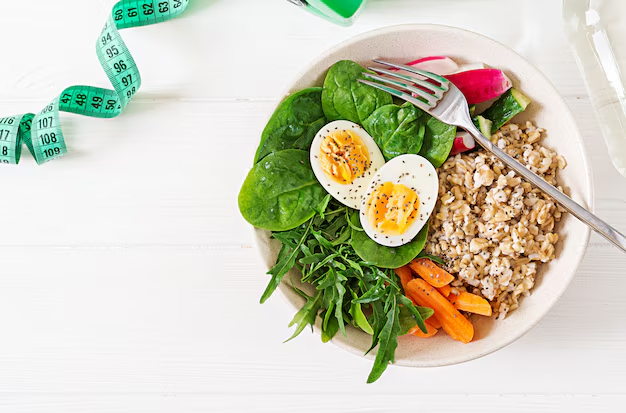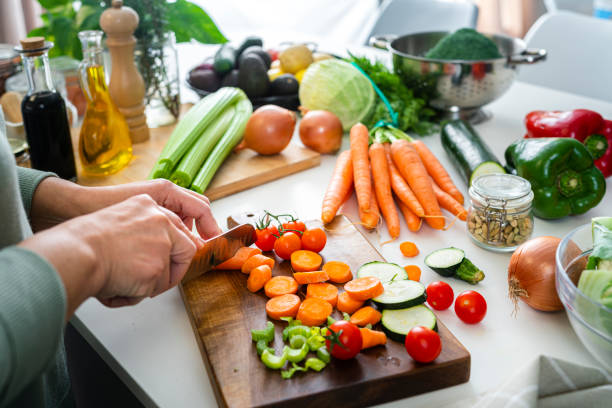Many people choose to take on a calorie-controlled diet to help them lose weight and manage their food intake. But it’s important to make sure it’s the right option for you first. 1,200 calorie meal plan is only suitable for women, as men generally have higher energy requirements than women. This means a plan that provides more calories a day would be more appropriate for men. So, see below 1200 calorie diet plan for weight loss.
What Is The 1200 Calorie Diet Plan For Weight Loss?
A 1200 Calorie Diet Plan For Weight Loss diet is a customized low-calorie meal plan followed for weight loss or recovery from any particular health concern.
- What Is The 1200 Calorie Diet Plan For Weight Loss?
- 1200 Calorie Diet Plan For Weight Loss:
- What To Eat When On The 1200 Calorie Diet?
- What Not to Eat When On the 1200 Calorie Diet?
- Conclusion:
- FAQs:
- Q. What is a 1200 calorie diet plan for weight loss?
- Q. How much weight can I lose on a 1200 calorie diet?
- Q. Is a 1200 Calorie Diet Plan For Weight Loss safe?
- Q. Can men follow a 1200 calorie diet plan?
- Q. Will I lose belly fat on a 1200 calorie diet?
- Q. What foods should I eat on a 1200 calorie diet?
- Q. How long should I follow a 1200 calorie diet?
- Q. Can I exercise while on a 1200 calorie diet?
- Q. Will I feel hungry on a 1200 calorie diet?
- Q. What are the risks of a 1200 calorie diet?
Research suggests decreasing calorie intake to 1200 calories per day makes the body use stored fat for energy, resulting in weight loss.
A study published in 2017 observed the efficacy of a 1200 calorie diet in reducing body weight, body fat percentage, and signs of cardiovascular risk, like blood pressure and cholesterol levels.
Meta-analysis of 2014 proved that low-calorie diets, around 1200 calories per day, support weight loss and increase metabolic constraints, such as insulin sensitivity.
1200 Calorie Diet Plan For Weight Loss:
Here is a 7-day meal plan for you if you want to restrict your calorie intake to 1200:
Early Morning: Lemon and ginger water-200ml
Breakfast: 2 Idlis- + Sambar with vegetables-100g
Mid-Morning Snack: 1 apple
Lunch: Brown rice cooked-100g + green leafy dal-100g + vegetable curry-100g + Vegetable salad-100g
Evening Snack: Roasted peanuts-50g
Dinner: 2 Ragi dosas + peanut chutney
What To Eat When On The 1200 Calorie Diet?
Here’s a list of what to eat when you’re on a 1200 calorie diet:
- Lean proteins: chicken, fish, egg, tofu and legumes.
- Whole grains: quinoa, brown rice, oats and barley.
- Healthy fats: nuts, seeds, avocados, and fatty fish.
- Fruits: berries, apples, oranges, and melons.
What Not to Eat When On the 1200 Calorie Diet?
Here’s a list of what not to eat when you’re on a 1200 calorie diet:
- High-calorie foods with low nutritional value: candies, pastries, cakes, chips, and fried foods.
- Processed foods: fast food, frozen meals, and packaged snacks.
- Sugary snacks or drinks: soda, energy or flavored drinks, ice-creams, cookies, and chocolates.
- High-fat foods: full-fat dairy products, butter, and margarine.
Conclusion:
It is important to set realistic goals for weight loss. Speaking to your healthcare team may be a helpful starting point in setting a target that is achievable and can be maintained in the long term to help improve your health and diabetes management. Even small amounts of weight loss (around 5% body weight) can make a real difference.
FAQs:
Q. What is a 1200 calorie diet plan for weight loss?
A. A 1200 calorie diet plan is a low-calorie eating plan designed to create a calorie deficit, helping the body burn stored fat for energy. It typically includes balanced portions of protein, carbohydrates, and healthy fats to promote safe and steady weight loss.
Q. How much weight can I lose on a 1200 calorie diet?
A. Most people can lose 0.5 to 1 kg (1–2 pounds) per week, depending on metabolism, activity level, and starting weight. Results vary from person to person.
Q. Is a 1200 Calorie Diet Plan For Weight Loss safe?
A. A 1200 Calorie Diet Plan For Weight Loss can be safe for sedentary women or individuals with lower calorie needs when followed short-term and with proper nutrition. However, it may not be suitable for men, athletes, pregnant women, or individuals with medical conditions without medical supervision.
Q. Can men follow a 1200 calorie diet plan?
A. Most men require more than 1200 calories daily. A very low-calorie intake may lead to fatigue and muscle loss. Men typically benefit more from a 1500–1800 calorie weight loss plan, depending on their body size and activity level.
Q. Will I lose belly fat on a 1200 calorie diet?
A. Yes, a calorie deficit can help reduce overall body fat, including belly fat. However, spot reduction is not possible. Combining the diet with strength training and cardio improves fat loss results.
Q. What foods should I eat on a 1200 calorie diet?
A. Focus on:
Lean proteins (eggs, chicken, dal, paneer)
High-fiber vegetables
Whole grains (in controlled portions)
Low-calorie fruits
Healthy fats (limited amounts)
Avoid fried foods, sugary drinks, and processed snacks.
Q. How long should I follow a 1200 calorie diet?
A. It is generally recommended for short-term use (4–12 weeks). After reaching your target weight, gradually increase calories to maintenance level to avoid regaining weight.
Q. Can I exercise while on a 1200 calorie diet?
A. Yes, light to moderate exercise such as walking, yoga, or strength training is recommended. Avoid excessive high-intensity workouts unless supervised by a professional.
Q. Will I feel hungry on a 1200 calorie diet?
A. You may feel slightly hungry initially. Eating high-protein, high-fiber foods and drinking enough water helps control hunger and cravings.
Q. What are the risks of a 1200 calorie diet?
A. If poorly planned, risks may include:
Nutrient deficiencies
Fatigue
Muscle loss
Slowed metabolism
Proper meal planning and adequate protein intake reduce these risks.

